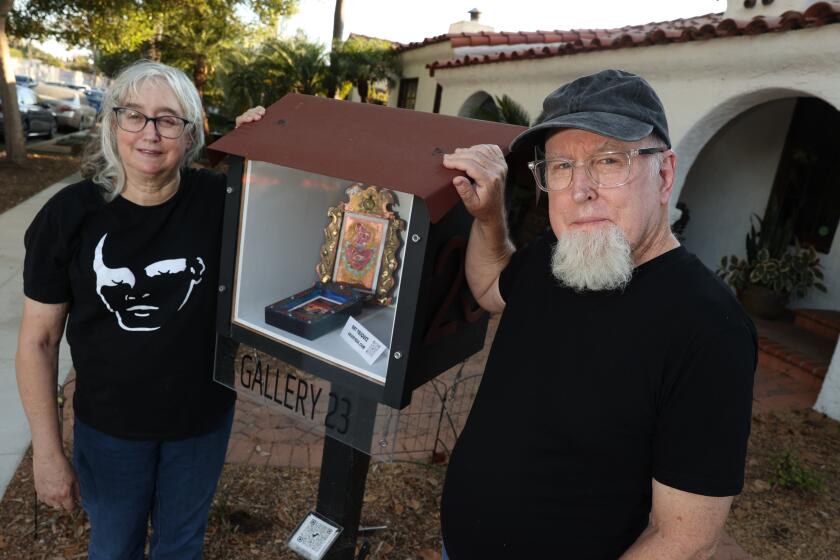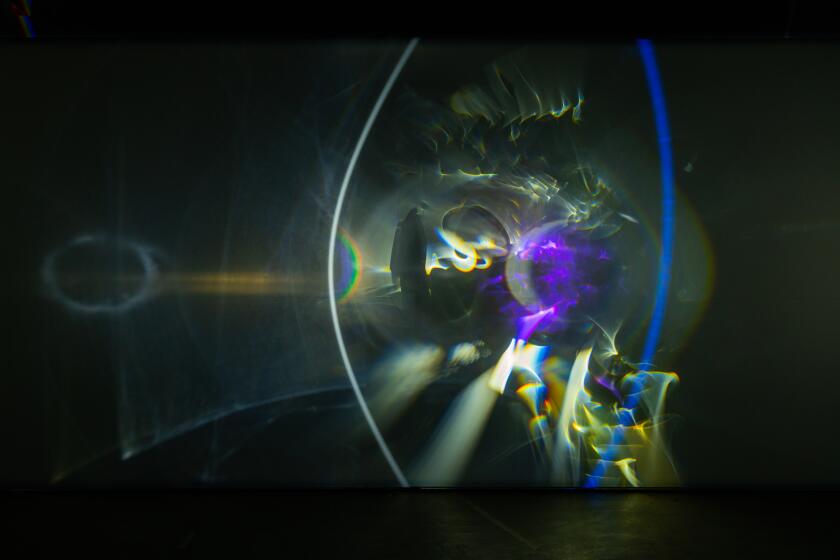Review: ‘A Wedding’ at the Lobero Theatre
SANTA BARBARA -- Every wedding he ever attended was, in some way, a disaster, the late filmmaker Robert Altman claims in a featurette that accompanies the DVD of his 1978 comedy, “A Wedding.” The more wealth involved, of course, the greater the potential for madcap mishap.
In this case, cynical, old Chicago money marrying God-fearing, truck-driving new Louisville money. The movie, which includes inspired performances from Lillian Gish as the matriarch of the groom’s family and Carol Burnett as the nouveau riche mother of the bride, is a delicious mess.
Next came William Bolcom’s opera based on the movie. Translating one medium to another is its own recipe for disaster, and the bigger the project, the greater the potential for further mishap. Altman himself directed the production for Lyric Opera in Chicago four years ago.
As an opera, “A Wedding” was not a disaster. Parts of the score were wonderful; so too were parts of Arnold Weinstein’s mordant libretto. New insights were found, but fewer chances were taken on stage than on screen. Altman insisted that the trimmer opera, with 48 nut cases truncated down to 16 major roles, was an improvement over the film. Still, something was missing.
Friday night saw the premiere of a new, slimmer chamber version of “A Wedding” at the Music Academy of the West. And that brought a brand-new opportunity for disaster, especially with a student cast. This time, though, “A Wedding” was a winner.
The production in the 680-seat Lobero Theatre wasn’t as smart as it might have been. I don’t think the staging needed to be quite so silly. Revelation doesn’t readily come from slapdash ridicule. But the young singers got it anyway.
The operatic downscaling was in the orchestra. Bolcom is the all-American-style hurdler, and his score is lithe, at home in Broadway theater of yore, among several generations of rock and in any number of concert hall styles (tonal and atonal). His theatrical touch is sure. And fewer instruments, rather than more, makes everything feel lighter on its stylistic feet.
David Zinn’s set was simple and effective -- table and chairs were wheeled on and off. But his costumes were needlessly outlandish, exaggerations of exaggerated ‘70s leisure suits, frilly wear and the like. Director Chas Rader-Shieber’s sensibility, at least in his Handel productions I’ve seen, is high-nerd. All of this asks too little of Bolcom and Altman and too much of young singers.
Remarkably, though, the tack ultimately worked. Bolcom’s music, however hilarious, is deep. Parody in Weinstein’s libretto is sophisticated. Rader-Shieber began his production with a tendency to overexplain and trivialize, but the power of the music seemed to overwhelm him over time. In the end, caricatures became real characters.
Everyone in an exceptional cast proved worth caring about. The academy’s vocal program, which is run by Marilyn Horne, trains singers on the verge of a professional career. The two or three top ones might be expected to be ready for the next step, yet I was won over by everyone as they ran here and there on the stage.
Tulip Brenner, the bride’s mother, has a buried passion absurdly awakened by a drunken ex-doctor art collector. In a major performance, Brenda Rae found Tulip’s heart. Edward Parks was a riot as her redneck husband, Snooks. Jennifer Feinstein -- who sang Nettie, the matriarch, and her socialist sister, Bea -- reminded me of a young Horne, so rich is her mezzo and so full of spark was she on stage. Bray Wilkins found the semisweet side of Luigi Corelli, the onetime waiter and Italian father of the bride. And so one could go, down the long cast list, were one to devote three or four pages of newsprint to the wonders of this talent pool.
George Manahan, who is music director of New York City Opera, conducted and got a sizzling performance from the student chamber orchestra. If casting directors from other companies weren’t lurking, that would be their tough luck, because it means Manahan will get first dibs for his company. He also now probably gets first dibs on the New York premiere of Bolcom’s opera. The reviews in Chicago were mixed. But now there is no reason to resist this rarest of creations: a meaningful American comic opera.
More to Read
The biggest entertainment stories
Get our big stories about Hollywood, film, television, music, arts, culture and more right in your inbox as soon as they publish.
You may occasionally receive promotional content from the Los Angeles Times.











